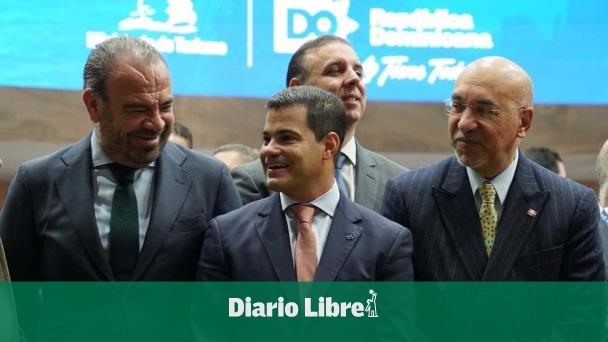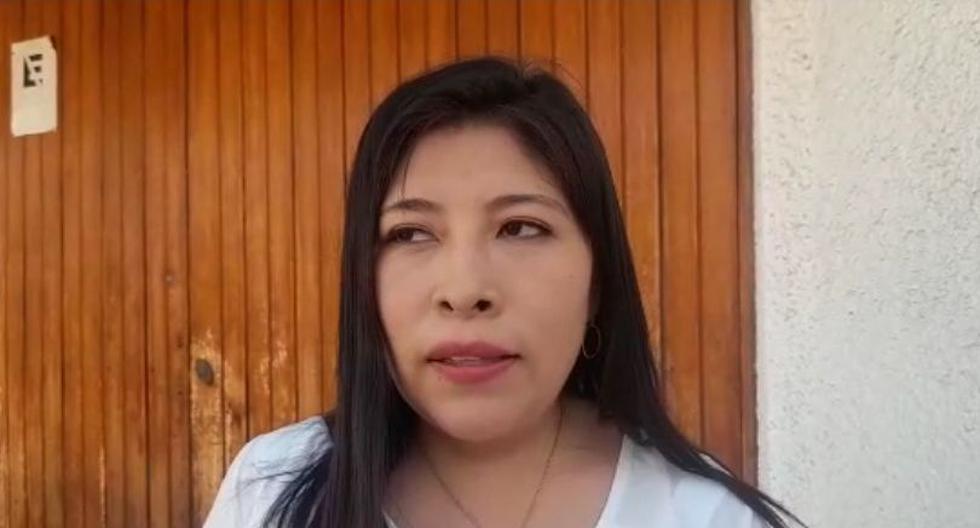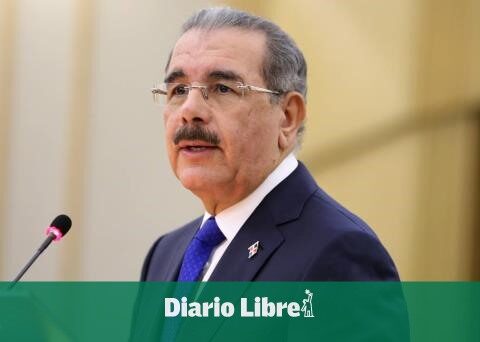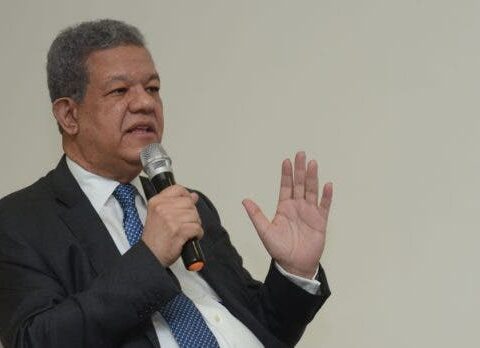David Llibre is still new representing the influential Association of Hotels and Tourism of the Dominican Republic (asonahores) as their President. A little over a month ago, he assumed the position that his father -Julio Llibre- already held a decade ago.
The young vice president of Coral Hospitality Corp. spoke with Free Daily in it stand of the Dominican Republic at the International Tourism Fair (fitur 2023) In Madrid Spain.
—Now the Dominican Republic has the challenge of surpassing itself, because last year it did very well. What are you going to do asonahores this year to continue promoting tourism?
We are working based on three pillars What are they: sustainability, regulation and connectivity. And we want to work on those points, which are what we understand will allow the growth and maintenance of our tourism, of what we have achieved so far.
Definitely, in the connectivity part we need more flight seats to lower the rates of air costwhich is the most important element that today, let’s say, I don’t want to tell you that it affects, but that it will allow us and help us to grow even more at a level.
We need more flight seats. We are an island and in order to grow as a tourist we need to bring more tourists, and that’s the way to do it with planes.
—And what do you plan to do about what is repeated a lot: that you have to diversify the tourist offer, you have to get out of “sun and sand”? When are we going to start?
But nowadays already (we started). today we have mountain tourismwe have health tourismwe have shopping tourism.
—But it seems that more is needed because many reiterate it.
Sure, definitely, but forever we’re going to have a important percentage of what is Sun and beach. Our destination is based on the Caribbean and our destination is known for sun and sand, but, at the same time, let’s say that we do have to diversify so as not to depend on a single tourism format.
But we are going to always have a significant percentage of Sun and beachand that does not affect us, that is what the volume is going to give us and it allows people to get to know the Dominican Republic and they can then, after a first, a second visit, go to the mountains, go to the city of Santo Domingo.
It will always be the complement to the other types of sightseeing. Mainly we will always be Sun and beach.
—Is the tourism sector ready so that the tax exemptions it receives can be eliminated and perhaps it already works without the support of the law that allows it to receive benefits?
The Dominican tourism success depends fundamentally on all regulation that tourism entails today, that is: the Confotur (Tourism Development Council).
All those incentive lawsboth tax and investment, is what has allowed the tourism development in the Dominican Republic. Eliminating them would basically be stop that growth.
We are totally in favor of keeping it, that adaptations arise. As everything in life, has to modernizeIt has to be fixed, it has to be improved.
—What do you think can be improved or fixed from that?
There are several aspects that should be work together. I dare not say anything in particular. We have been carrying out work together with the Ministry (of Tourism) and we faithfully believe that there may be important things to improve.
—When the incentives that the sector has are criticized, it is said that one of the objectives of the law was that with those incentives tourism could be developed in other cities in other regions, but everything has remained in the East.
Remember well that the law of Confotur starts for tourist poleespecially the eastern part. Just a few years ago it was released for the entire Dominican Republic and that is when we began to see development, as in the same Barahona, there is already development; in Baní itself there is development.
We have pending development towards the South Zone; today in Puerto Plata we have a new project that is being launched Brig Point. I think so, there is development.
However, we are not going to remove (the tax incentives) because, at the end of the day, the 60 percent of tourism comes through Punta Cana airport and therefore that is where the volume is.
Of the 7.2 million (of tourists who arrived in 2022), there are 6 millions that are entering through this route, but, therefore, little by little the other tourist poles would develop.
—What has happened with the regulation for Airbnbs?
What asonahoreswe have worked together with the Ministry to present clear proposals on the subject, because we need those digital platforms be regulated in a proper way. And when I deal with regulation, it brings me to a topic of tourist security.
A client who arrives in the Dominican Republic and stays in a hotel is not the same thing, that the hotel has property insurance, that the hotel has liability insurance against that client, that stay in an apartment.
We are not against. We understand that tourism digital platforms and real estate It is a reality and it will continue to grow, but it must grow in a orderly wayand that is why we said that one of the plans we have is the sustainability part, because we want to work together with the government to facilitate and regulate it, and to issue the licenses for this type of real estate projects.
—But this process has been going on for several months now and has not advanced. What happens?
Us we are not government (…) We are totally in favor of it, we want it to be promoted, we want it to work on the regularization of this type of business, let’s say with everything that entails: issue licensesthat they have property insurance, that they have everything necessary to guarantee the success and sustainability of Dominican tourism.
What it entails to carry out and issue that resolution and those laws and so on, it does not depend on us. Us we boost and we encourage that theme.
(After talking with Llibre, Tourism Minister David Collado said in an interview that Airbnb signed a agreement of intent with the Dominican Government to regularize their services in the country).
—If this year the crisis in Haiti continues to be more violent or the same, are you afraid that it will affect tourism? That tourists might think that they are going to an island shared with such a violent country?
As long as we continue to hold firm to one clear security policy and to keep that problem on that side, it should not affect us.
It doesn’t matter that it grows, the important thing is to maintain a steady handas our Government has done with respect to this issue, to continue to control it and continue to protect our borders.
—What do you expect to take away from this Fitur?
We hope that let’s continue to maintain and growing our sector. From what you see, it is a fair that has had an increasingly greater participation. And I think the Dominican Republic, definitely as has been said: we are in fashionhas been put on the map.
People recognize it, and the tour operators that are here, that are making rate agreements for the next season, are appreciating it, and I just think that we are going to get a lot of this experience.








